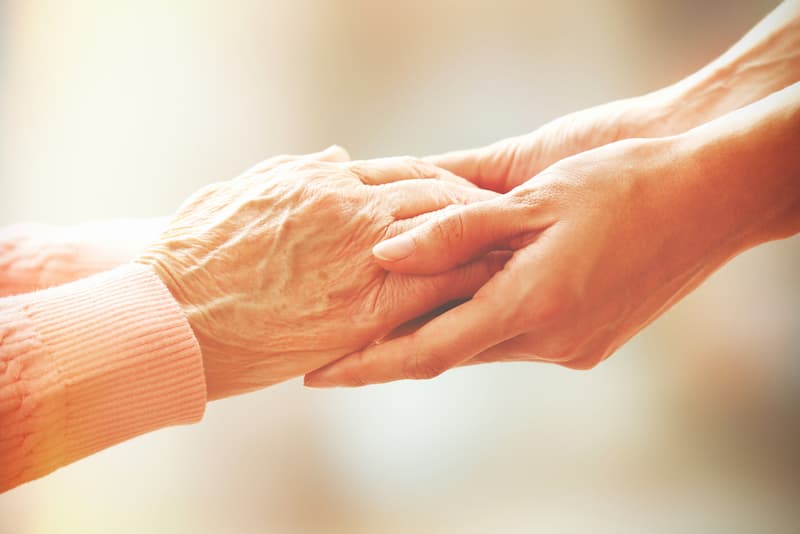What is a Caregiver?
A caregiver takes care of someone else who is unable to do everything for himself or herself. The patient may be a baby, a person with disabilities, or an elderly adult who has trouble with daily living activities. The term caregiver may apply to family members, friends, or paid providers such as healthcare professionals and personal care assistants. Caregivers are literal lifesavers for those to whom they provide care. However, the work is hard, emotionally, and often physically. So how do we take care of the caregivers?
What is Burnout and How Do I Recognize It in Myself or Someone Else?
Burnout involves the caregiver’s physical body, emotional state, and mental health. It often happens when caregivers don’t get the support they need or when they try to take on more caregiving tasks than they can successfully manage over time. A caregiver may get burned out when they overcommit in time, energy, or finances. When caregivers spend all their time taking care of someone else, they often forget to take care of their physical, mental, and spiritual health.
Caregiver burnout may manifest itself in several ways:
- Changes in attitude toward providing care and the person who needs the care may happen. The caregiver may change from being very positive and enthusiastic about the role, to being apathetic or cynical.
- Fatigue, changes in sleep patterns, and physical exhaustion
- Stress, anxiety, and feelings of hopelessness or helplessness
- Depression, withdrawing from loved ones, and a loss of interest in enjoyable activities
- Feeling guilty about spending time away from the person needing care
- Physical changes such as weight loss or changes in appetite
- Increased intake of alcohol or dependence on prescription drugs
What Do Caregivers Experience When Suffering from Burnout?
Every caregiver is different, and my experience different feelings when enduring a period of burnout. However, here are a few of the most common:
-
Changes in roles:
- When a caregiver is taking care of a parent, spouse, or friend, the role of that caregiver changes in relation to the patient. The caregiver may struggle with transitioning from being a son or daughter or wife or husband to a different role.
-
Unrealistic expectations:
- Caregivers may expect that the patient will be happy to have them providing care. However, they may feel disappointed if they don’t see the positive impact they were expecting. Patients with a terminal condition or a progressive disorder may not make positive gains, no matter who the caregiver is.
-
Frustration due to lack of resources:
- It is easy for caregivers to get frustrated when resources are lacking. Insurance may not pay for a particular treatment or medication, or the caregiver may lack the medical training necessary to meet all of the patient’s needs.
-
Feeling exclusively responsible:
- Caregivers may feel that they are the only ones who can or will care for the patient. As a result, they set unreasonable expectations for themselves.
-
Lack of self-awareness:
- Recognizing burnout in themselves is often problematic for caregivers. They may get sick themselves or suffer a complete breakdown before admitting that they are struggling and overwhelmed.
How to Take Care Of or Help the Caregiver
If you or someone you love is a caregiver, there are some things you can do to help alleviate burnout:
- Acknowledge that caregiving is stressful, albeit rewarding, even when it is an integral part of who you are. Make it okay to talk about the stresses, challenges, and difficulties of taking care of someone.
- Offer or accept help. If you are the caregiver, make a list of how others might help you and ask others to choose something from the list. The tasks don’t have to be big; even running small errands, picking up groceries, or proving a meal can help. If you are the person offering to help the caregiver, think about specific ways you can help rather than asking the open-ended question of “how can I help.”
- Be realistic about what you can do and what you can provide. Accept that no one is perfect, and no one can do everything. Know that doing the best you can is enough when you have others around you to fill the gaps.
- Find resources to support you while you support the patient. Most communities have caregiving program support and groups where you will find people experiencing the same things you are.
Where Can I Find Help With Burnout?
Trusted Choice Homecare understands the benefits and challenges of being a caregiver. We are a Fiscal Intermediary (FI) for New York State’s Consumer Directed Personal Assistance Services (CDPAS), covering all of New York State. We work with most insurance companies and with local Departments of Social Services. We can help with a variety of resources for consumer-directed personal care, including home care assistance. We can help you explore the options for taking care of the caregiver as well as the patient. Contact us today so that we can begin to help you and your loved ones. Please call (716) 431-5550 if you have any questions.
_______
Image Credit: Shutterstock/ Africa Studio

Recent Comments